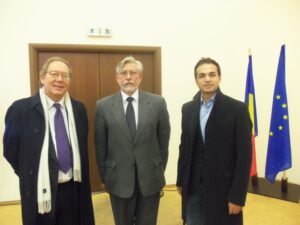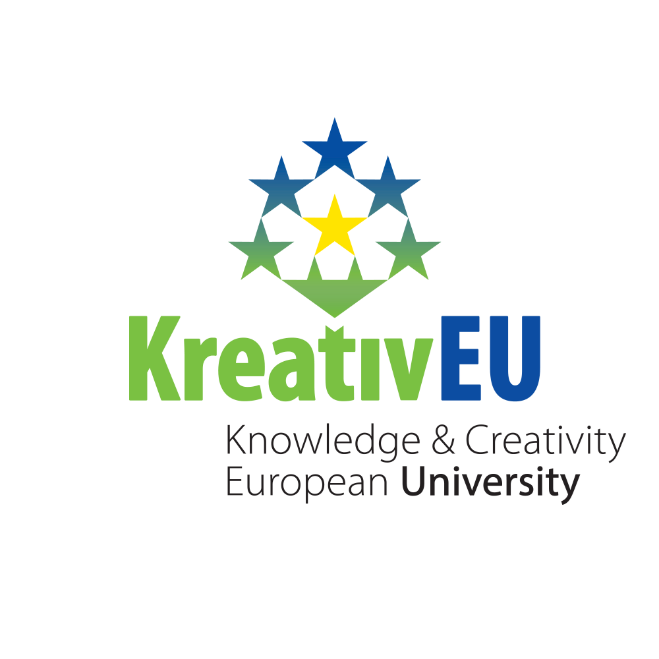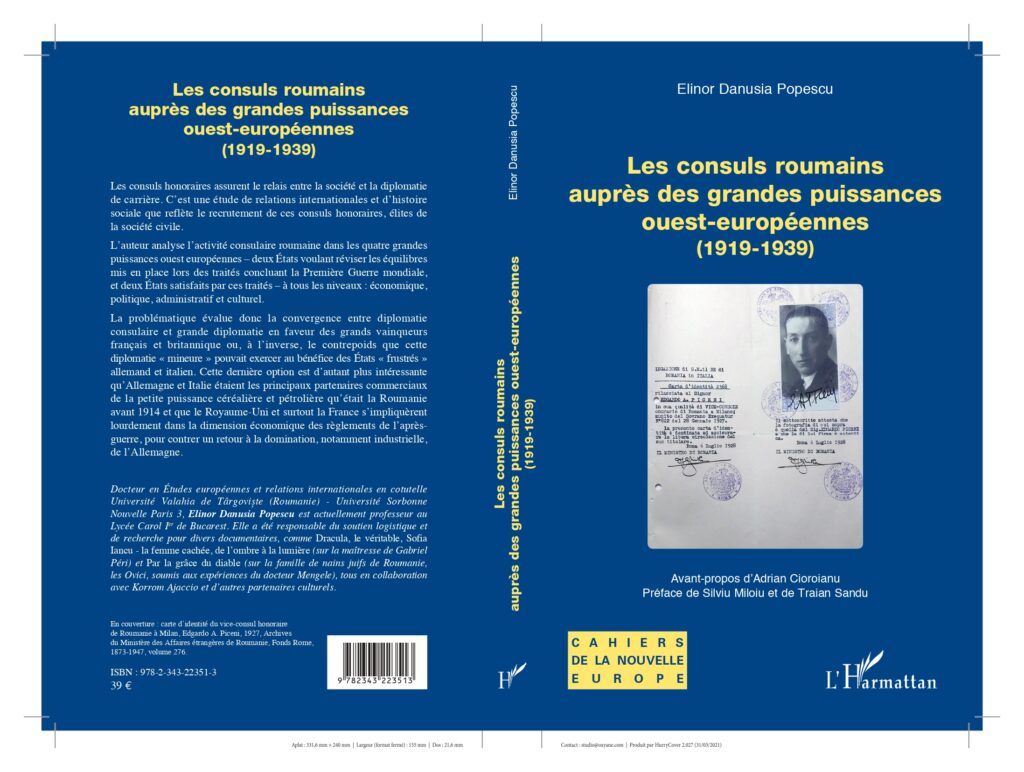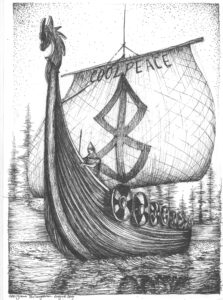 Valahia University of Targoviste collaborates with 123 universities, institutes, and businesses from 38 European Union, European Economic Area, and other European countries, as well as the Asian, American, and African continents, and this number is expanding (see below). Half of the countries with which the university has collaboration agreements (19) are from the EU, while the other half are from outside the EU, demonstrating the university’s commitment to European principles, as well as its openness and global outlook. Inter-university or partner collaboration agreements encompass a wide range of forms of collaboration, including bilateral and multilateral agreements, Erasmus Plus contracts, research contracts and partnerships, and multilevel arrangements. Our partners
Valahia University of Targoviste collaborates with 123 universities, institutes, and businesses from 38 European Union, European Economic Area, and other European countries, as well as the Asian, American, and African continents, and this number is expanding (see below). Half of the countries with which the university has collaboration agreements (19) are from the EU, while the other half are from outside the EU, demonstrating the university’s commitment to European principles, as well as its openness and global outlook. Inter-university or partner collaboration agreements encompass a wide range of forms of collaboration, including bilateral and multilateral agreements, Erasmus Plus contracts, research contracts and partnerships, and multilevel arrangements. Our partners
Valahia University of Targoviste is the initiator and member of the Kreativ EU European Institutions Consortium, which includes universities from Portugal, Bulgaria, Czechia, Germany, Italia, Low Countries, Poland, Slovakia, Sweden and Türkiye. The consortium’s application to the European Union for funding its activities is due in February 2023.

Portugal: Polytechnic University of Tomar (Portugal) – Chair
Bulgaria: Dimitar A. Tsenov Academy of Economics – Svishtov
Czechia: University of South Bohemia in České Budějovice
Germany: University of Greifswald
Italy: University of Camerino
Netherlands: Breda University of Applied Sciences
Poland: University of Opole
Romania: Valahia University of Targoviste
Slovakia: Trnava University in Trnava
Sweden: Södertörn University
Turkiya: Adana Alparslan Türkeş University of Science and Technology

Valahia University is a member of a variety of distinguished international organizations, including but not limited to the following.
AFECA – Association des Formations Européennes a la Comptabilité et a l’Audit
AMS – American Mathematical Society, USA
AUF – L’Agence Universitaire de la Francophonie
CIVIS – Comité Indépendent de Veille Internationale Stratégique
ECR – Efficient Consumer Response
ELFA – European Law Faculties Association
EMA – European Management Association
ISDE – International Society of Difference Equations
MSCA – Marie Skłodowska-Curie ActionLow Countries
Valahia University of Targoviste is always striving to strengthen the internationalization of its programs, including through Double and Joint Degrees, as well as co-tutelle doctorate studies. Valahia University has completed double doctoral degrees with the following prestigious higher education institutions:
University of Caen (2003-2006), for the supervision of the doctoral thesis of Maria TOMA, Valahia University Ph.D. advisor Prof. Dr. Maria NICULESCU
University of Franche Compté (2012-2016), for the supervision of the doctoral thesis of Ciubotariu Dragoș Adrian, Valahia University Ph.D. advisor Prof. Dr. Dinu Colțuc.
Sorbonne Nouvelle University (2015-2018), for the supervision of the doctoral thesis of Popescu Elinor Danusia, Valahia University Ph.D. advisor Prof. Dr. Hab. Silviu-Marian Miloiu.

University of Stuttgart (2015-2019), for the supervision of the doctoral thesis of Defta Dragoș, Valahia University Ph.D. advisor Prof. Dr. Hab. Silviu-Marian Miloiu.
Université Paris 8 (2016-2019), for the supervision of the doctoral thesis of Georgescu Ruxandra, Valahia University Ph.D. advisor Prof. Dr. Ion Stegăroiu.
Ion Creanga State Pedagogical University of Chisinau (2020-2023), for the supervision of the doctoral thesis of Trandafir Marinela, Valahia University Ph.D. advisor Prof. Dr. Hab. Sergiu Musteață.
State University of Moldova (2020-2023), for the supervision of the doctoral thesis of Capel-Muscalu Viviana, Valahia University Ph.D. advisor Prof. Dr. Hab. Sergiu Musteață.
State University of Moldova (2020-2023), for the supervision of the doctoral thesis of Ghiță Adrian Corneliu, Valahia University Ph.D. advisor Prof. Dr. Hab. Sergiu Musteață.
A piece of culture, a culture of peace, Project Number: RO15-0053
 The project started from the idea that Romanian teenagers have fragmentary and distorted knowledge on the social, economic, cultural and political developments in Scandinavia and on the connections, relationships and transfers between this region and the Romanian area, while knowledge about the Baltic countries is scarce. The Summer School aimed to change this reality, by offering Romanian students the opportunity to participate in and observe the dynamics of cultural, social, political, economic developments in the Nordic states, as well as help the teenagers become acquainted with the languages used in the Nordic and Baltic states. Among the expected outputs numbered a good practice guide to prove the transfer of expertise between staff members, the publishing in The Romanian Journal for Baltic and Nordic Studies , a course syllabi and an international workshop “A piece of culture, a culture of peace”, to which the students could also participate, as well as a student blog of culture and civilization based on the acquired knowledge, including job offers in the field. The learning outcomes referred to the acquisition of knowledge, skills and competences in the field of Nordic and Baltic studies in the case of the students, but also the acquisition of innovative methods of teaching in the case of the Romanian staff due to the transfer of expertise with the Norwegian partners. The course modules, the seminars, workshops, debates and visits contributed to the opening of cultural horizons, making young people aware of the linguistic diversity, and understanding the interaction, but also the differences between Romanians and the Nordic peoples.
The project started from the idea that Romanian teenagers have fragmentary and distorted knowledge on the social, economic, cultural and political developments in Scandinavia and on the connections, relationships and transfers between this region and the Romanian area, while knowledge about the Baltic countries is scarce. The Summer School aimed to change this reality, by offering Romanian students the opportunity to participate in and observe the dynamics of cultural, social, political, economic developments in the Nordic states, as well as help the teenagers become acquainted with the languages used in the Nordic and Baltic states. Among the expected outputs numbered a good practice guide to prove the transfer of expertise between staff members, the publishing in The Romanian Journal for Baltic and Nordic Studies , a course syllabi and an international workshop “A piece of culture, a culture of peace”, to which the students could also participate, as well as a student blog of culture and civilization based on the acquired knowledge, including job offers in the field. The learning outcomes referred to the acquisition of knowledge, skills and competences in the field of Nordic and Baltic studies in the case of the students, but also the acquisition of innovative methods of teaching in the case of the Romanian staff due to the transfer of expertise with the Norwegian partners. The course modules, the seminars, workshops, debates and visits contributed to the opening of cultural horizons, making young people aware of the linguistic diversity, and understanding the interaction, but also the differences between Romanians and the Nordic peoples.
Towards a better protection of children against air pollution threats in the urban areas of Romania, Project Number: RO14-0007
ROKIDAIR project has focused on the impact of airborne particulate air pollutants on children’s health. The resulted cyberinfrastructure developed within the ROKIDAIR project is sustaining the new measures for improving air quality established by European Commission for controlling the fine particulate emissions (PM2.5) based on new evidence about associated health issues. The main outcome of the Rokidair project was the developing of a new cyberinfrastructure relying on a new instrument for measuring on-line the PM2.5 concentrations, which was developed in the project and comprising 8 instruments that have been located in Romanian cities i.e., Targoviste, Ploiesti and Bucharest. They are transmitting data to the mapping server, and to the forecasting server, and afterwards the processed information are displayed on the Rokidair geoportal, being freely available to the users. The forecasting module is using Artificial Intelligence algorithms facilitating the optimal functioning of the Early Warning System. The expert messages are transmitted via e-mails and SMSs to the registered users providing support for children’s health management under impacts of air quality stressors and pressures.The developed RokidAIR products and services can be further tested and applied in other towns to provide reliable and useful estimates of air quality to the public, to increase citizens’ awareness, and to provide evident-based solutions to the policy makers. Another outcome was the results from epidemiological studies that have established some key points in monitoring the potential correlations between PM fractions and sensitive children’s health. The experience of NILU team in air quality studies contributed to the fulfilling of the scope of Romanian-EEA Research Programme in line with the Environmental protection and management thematic area. Consequently, this can be a new step to strengthen the bilateral relations by enhancing research cooperation between the scientific communities of Romania and Norway, . The project enhanced the quality of research training with the involvement of Master and Ph.D. students, as well as Post-doc researchers, which has created the conditions for future collaboration in a long-term perspective. The cooperation between Romanian and Norway teams has conducted to 10 scientific articles in referred publications, one book that was awarded with “Ioan Ursu” prize of The Academy of Romanian Scientists.
Social and professional inclusion of young people facing severe risks, Project Number: RO10-0059
The need for starting the project came as a result of studies carried out in Romania concerning school dropout the unemployment rate and the inclusion on labour market among young people. The general interest to reduce social disparities also became an interest for the University of Valahia which through this project was able to form a homogeneous group of students by eliminating the differences related to vulnerability or dependency. A decisive factor in realizing this project was its own database with students currently enrolled in recent years with numerous cases of young people from single-parent families, talented youths from disadvantaged families, Rroma youth and young adults with disabilities who attend to access higher education. The overall objective of the project was accomplished as it offered real opportunities for 208 youth in risk situations in order to overrun situations of abandon, vulnerability and risk and to increase social inclusion and personal development. PP managed to tackle concrete measures to ensured employability and access to the labour market and education of young students involved in the project. By the results of the activities implemented, the specific objectives have been achieved under the financing contract. The main results of the project are: improved opportunities to access education for young beneficiaries (additional courses were organised for training in priority areas of knowledge society in conjunction with the requirements of the labour market); inclusion on labour market (young people’s access was facilitated at the legal practice in public and private entities); personal development (counselling and individualised support); social cohesion (young people have participated at round tables, workshops and national and international study tours) The impact for beneficiaries: the group cohesion created during the project is expressed through dialogue either directly or through other social networking; an increased self-esteem of young people marginalised who actively participate in activities organised by PP; inclusion on the labour market: from 208 direct beneficiaries of the project, 22.5% were integrated on the labour market during the implementation period. For the rest of beneficiaries there is potential for employment; school absenteeism: during the project implementation, the abandonment rate was 0% and over 80% of young people involved in the project continue their university studies.
Valahia University of Targoviste has been a leader or participant in a variety of EU educational, scientific, and social projects, including:
Project number: Theme [SiS- 2010-2.2.1.1])- nr. 266589
Program name: Seventh Framework Programme: PROFILES – Professional Reflection- Oriented Focus on Inquiry- based Learning and Education through Science
Project coordinator: Freie Universität Berlin, Germany
Partners: University of Tartu (Estonia) Weizmann Institute of Science (Israel), Universität Klagenfurt (Austria), Cyprus University of Technology (Cyprus), Masaryk University Brno (Czech Republic), University of Eastern Finland (Finland), University College Cork (Ireland) Universita’ Politecnica delle Marche (Italy), University of Latvia (Latvia) Utrecht University (Netherlands), University of Maria Curie-Sklodowska (Poland), University of Porto (Portugal) “Valahia” University Targoviste (Romania), University of Ljubljana (Slovenia) University of Vallalodid (Spain), University of Applied Sciences of Northwestern Switzerland (Switzerland), Dokuz Eylul University (Turkey), University of Northumbria (UK), University of Bremen (Germany), International Council of Associations for Science Education (UK).
Total project: 3,447,905 EUR
Objectives: PROFILES promotes IBSE through raising the self-efficacy of science teachers to take ownership of more effective ways of teaching students, supported by stakeholders. PROFILES involves the development of teachers on four fronts (teacher as learner, teacher as effective teacher, teacher as reflective practitioner, teacher as leader) consolidating their ownership of society-led, IBSE approaches and incorporating use- inspired research, evaluative methods and stakeholder networking. The project disseminates its innovation with trained lead teachers spearheading further teacher development at pre- and in-service levels and initiating a series of workshops for key stakeholders nationwide.
Project number: 511733-LLP-1-2010-1-FI- KA3-KA3MP
Program name: LLP Key Activity 3 Programme: Information and Communication Technologies: CoCreat – Enabling Creative Collaboration through Supportive Technologies
Partners: Norwegian University of Science and Technology, Trondheim (Norway), „Valahia” University Targoviste (Romania), Tallinn University (Estonia), University of Bristol (UK), Universitat Oberta de Catalunya, Barcelona (Spain), Kymenlaakso University of Applied Sciences (Finland)
Total project: 646,631 EUR
Objectives: CoCreat results in new solutions for promoting creative collaboration in terms of new and innovative learning models based on social media and mobile technology. The main idea is to develop and evaluate collaborative spaces for learners of different ages in order to promote creative collaboration. Collaborative spaces include the following ideas:
1) scripting collaborative learning models;
2) developing technology enhanced spaces to support creative collaboration;
3) modelling how learners of different ages collaborate in these spaces.
Project number: 511787-LLP-1-2010-1-TR- KA3-KA3MP
Program name: LLP Key Activity 3 Programme: Information and Communication Technologies: NTSE – Nano- Tech Science Education
Project coordinator: Ozel Doğa Eğitim Kurumları, Istanbul, Turkey
Partners: Fondazione Idis-Citta della Scienza (Italy), Sirma Media AD (Bulgaria) Foundation for Research and Technology-Hellas (Greece). Center for Creative Training Association (CCTA) (Bulgaria), „Valahia” University Targoviste (Romania)
Total project: 518,517 EUR
Objectives: NTSE aims to use ICTs as a tool to make the learning of science subjects more attractive and accessible. The project target groups are students from the general and vocational schools aged 13 to 18; teachers in science subject, plus college & university students attending science education courses (prospective school teachers in sciences). The project will establish a Virtual Lab, as an experimental virtual aid to science learning. This will serve as a platform for science lessons, as a database of teaching materials and as a hub for science-learning-related graphic aids and recorded and illustrated appealing experiments on Nano-Tech. It will include a Nano-Science Center, presenting to learners and their in-service or future teachers the miracles of the nano-technologies.
Project number: 518321-LLP-1- 2011-1-TR- COMENIUS- CMP
Program name: LLP Comenius CMP: Sustaining Development in Early School Education
Project coordinator: Doğa Koleji Eğitim Kurumları Anonim Şirketi, Istanbul, Turkey
Partners: Center for Creative Training Association (CCTA) (Bulgaria), „Valahia” University Targoviste (Romania), Centre for Creative Development “Danilo Dolci” (Italy)
Total project: 399,982 EUR
Objectives: SUSTAIN is a Comenius project that aim to gather and share good practices from partner countries in two year programme to encourage best results, innovative products to improve the quality of education and training through local workshops, online classroom implementation. A Good Practices online database containing models for activities, and teaching tools & ITTC will be realized to enhance teachers, competencies, Project booklet and e-platform as outputs are presented to teachers, policy makers and the broad public. With this project we will promote the acquisition of key competences relevant for education for sustainable development starting from the early school age.
Project number: 118766-CP-1- 2004-1-RO- COMENIUS- C21
Program name: Socrates – Comenius 2.1.: FISTE A Future Way For In-Service Teacher Training Across Europe
Project coordinator: „Valahia” University Targoviste
Partners: University of Oulu (Finland), Iceland University of Education (Iceland), In-Service Teacher Training Centre Jerez (Spain), Babes-Bolyai University Cluj Napoca (Romania), National Academy of Physical Education and Sport (Romania), University of Latvia (Latvia)
Total project: 509,348 EUR
Objectives: The proposed project is aimed at developing in-service teacher education for today and especially for future on a European level. In essence, the project is aimed at finding new ways of how to teach in-service teachers in in- service teacher training and how the teachers themselves can learn and upgrade their knowledge and teaching methods by using ICT. The proposed project concerns the development of an in-service teacher course on national and on European level.
Project number: Contract No. 59/31.05.2012
Program name: Life-Long Learning Program (LLP), sectorial program Erasmus
Project coordinator: National Agency for Community Programs in the domain of education of professional training
Partner: „Valahia” University Targoviste
Total project: 292,838EUR
Objectives: Study mobilities for students and teaching mobilities for the teaching staff in universities of the European Union, as part of the sectorial program Erasmus
Project number: 2011-1-GB2- LEO05-05445
Program name: Leonardo da Vinci Programme, 2011 Transfer of innovation agreement number UK/11/LLP- Ldv/TOI-401 Passport to Trade 2.0
Project coordinator: University of Salford, Manchester, United Kingdom
Partners: Poradenstvi Consultancy, Tis Praha (Czech)
Turku School of Economics (Finland), SPIN – Consorzio di ricerca in technologie del informazione e della comunicazione scrl research (Italy), URENIO- Committee of the Aristotle University of Thessaloniki (Greece), Technology Development and Innovation (TDI Ltd) (Bulgaria), University of Koblenz – Landau (Germany)
„Valahia” University Targoviste
Total project: 292,838 EUR
Objectives: Scientific research development in the Faculty of Economics and integration of the doctoral students of the economic domains in international research teams. Realization of international contacts and increase of the Institutional visibility.
Project number: ELEMENTAL: Breaking Down Barriers to Enterprise
Program name: Leonardo da Vinci Programme, Multilateral Projects for Development of Innovation
Project coordinator: University of Salford, Manchester, United Kingdom
Partners: University of Salford (Great Britain), TCFE(Great Britain), South East European Research Centre(Greece), University of Lodz, Faculty of Management (Poland), MENTER(Great Britain), ERGANI(Greece), TBG (Great Britain),
Total project: 137,611 EUR


